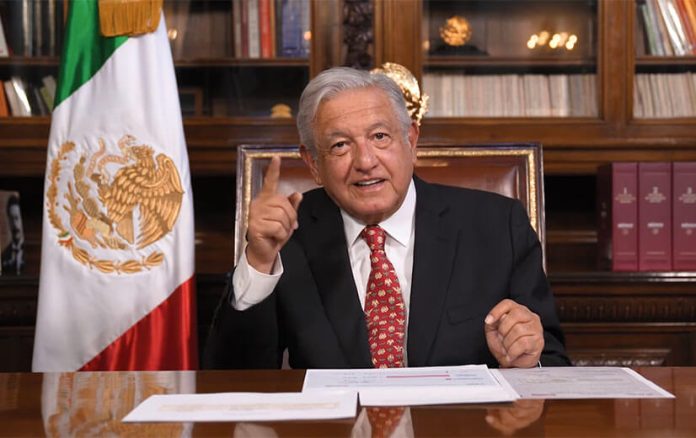Fewer than 20% of Mexico’s eligible voters cast a ballot in Sunday’s polarizing recall referendum that was boycotted by much of the opposition.
President López Obrador was projected to win more than 90% of the vote, according to the National Electoral Institute (INE). The final result of the ballot, which asked whether López Obrador should see out the remainder of his six-year term, will be known in the coming days.
Turnout for the referendum was between 17% and 18.2%, according to INE’s projections, well short of the 40% needed for the result to be binding. The nationalist leader, who enjoys approval ratings of about 60% and won a landslide election in 2018, introduced the recall vote against himself.
In the first half of his term, López Obrador implemented sharp budget cuts and expanded social programs for the elderly and young job seekers. He also focused public investment on a handful of emblematic projects, including an oil refinery, a 1,400-kilometer tourist train ride and a new airport for the capital.
Mexico’s economic recovery has been sluggish, with investment held back by policy uncertainty and a near-record homicide rate. López Obrador has also clashed with the US over energy reform designed to favor the state electricity company, with a crucial vote set for this week.
But critics and the opposition said the ballot was a US $80 million farce designed to boost the president’s popularity. They fear that López Obrador wants to remain in power beyond Mexico’s one-term limit and that he is trying to undermine INE.
López Obrador — who has denied that he is seeking re-election — has called INE, a cornerstone of Mexico’s relatively young democracy, antidemocratic and accused it of acting illegally. He recently said he would push a reform to have INE’s board members directly elected.
Many voters, however, remain loyal to the president, who they see as a rare, incorruptible politician who spends time in the country’s small towns meeting regular people.
Mercedes Santamaría, from the president’s home state of Tabasco, said three years was not long enough to end corruption and impunity and that conditions were improving under López Obrador.
“I’m very happy that he redirected money that was previously for bureaucrats to line their pockets . . . while the people were dying of hunger,” the 65-year-old said outside a polling station.
Copyright The Financial Times Limited 2022. All rights reserved.
